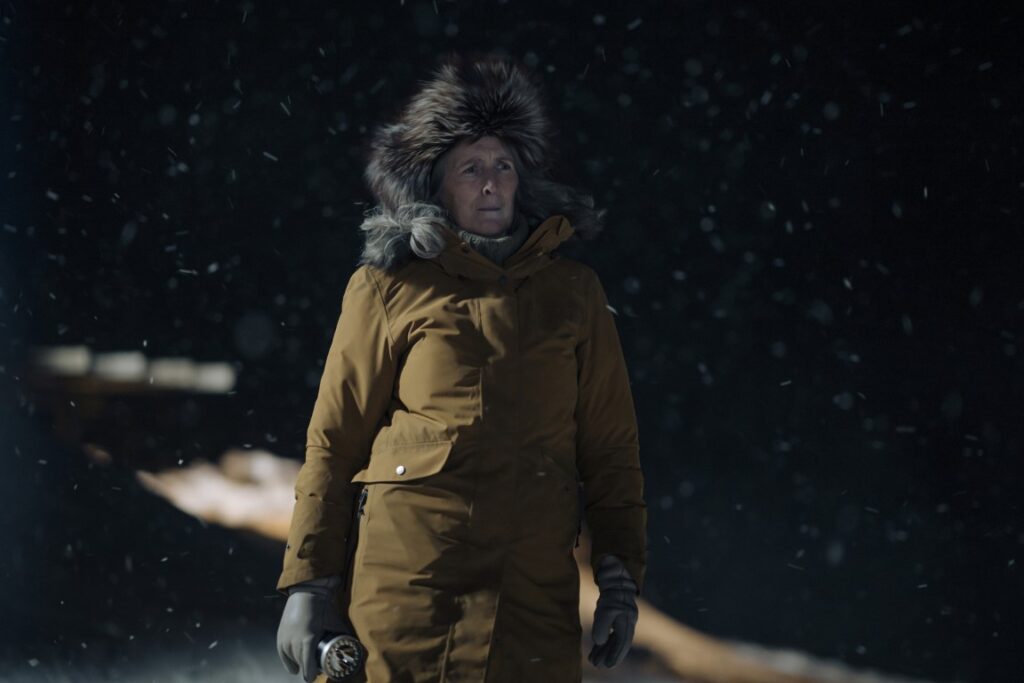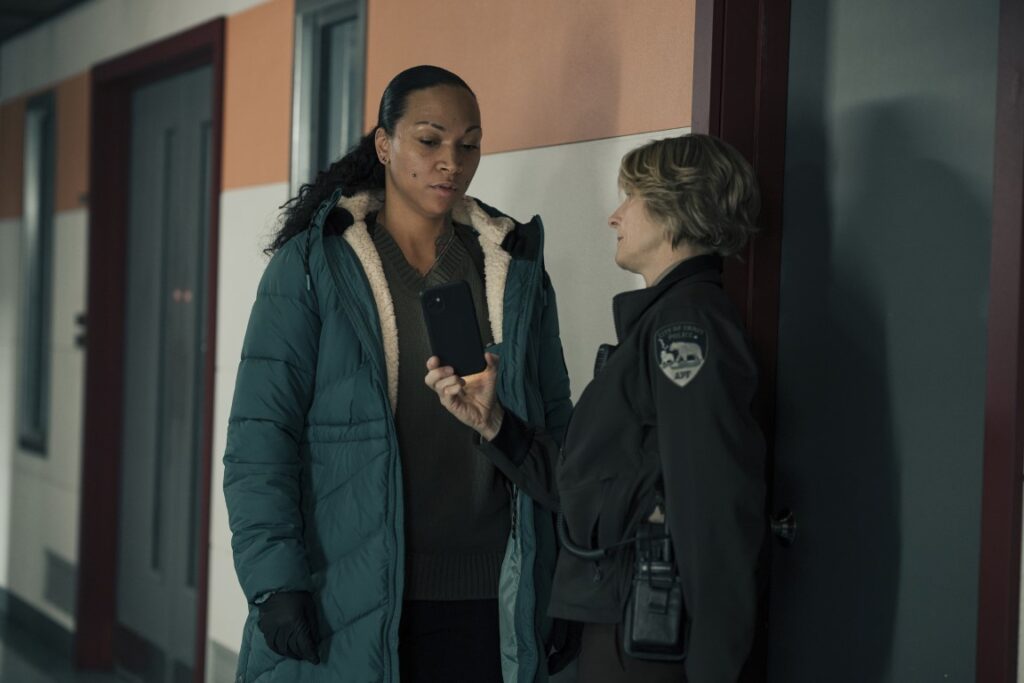Read also:
How to Watch FX Live Without CableHow To Watch AMC Without CableHow to Watch ABC Without CableHow to Watch Paramount Network Without CableJodie Foster and Kali Reis shine as a pair of detectives investigating an increasingly surreal crime.
In Sara Gran’s Claire DeWitt mysteries, the title character is a brilliant, eccentric detective haunted by the unsolved disappearance of one of her closest friends. Her cases are vitally recognizable and beautifully surreal. When The Infinite Blacktop, the most recent entry in the series, was released in paperback, Gran held a giveaway, including a copy of the book and some fun feelies. On one of those, a pen, the following was printed: “Open your eyes and learn to see that truth lives in the ether.” In the course of thinking about Issa López (Tigers Are Not Afraid)’s excellent True Detective: Night Country, it’s a line that’s been on my mind.
It’s the end of 2023. In Ennis, Alaska, the eccentric scientists of the Tsalal research station vanish just as the long polar night sets in. Ennis police chief Liz Danvers (Jodie Foster) and detective-turned-trooper Evangeline Navarro (Kali Reis) know that something is not right. Though bitterly estranged, the former partners share a drive to discover what happened at Tsalal and why. Their need to get to the truth only intensifies after the scientists are discovered in a ghastly, bizarre state—a collective corpsicle, all of them nude and visibly terrified.
Beyond their decidedly unusual circumstances, the Tsalal deaths may tie back to an unsolved murder that has haunted Navarro and Danvers for years—the vicious stabbing death and mutilation of Iñupiaq Ennis environmental activist and midwife Annie K. And even as Navarro and Danvers follow the spirals of the Tsalal case deeper and deeper, their fraught lives outside the case continue.

Danvers’ stepdaughter Leah (Isabella Star LeBlanc) is increasingly frustrated by Danvers’ harsh parenting and trying to connect with her Iñupiaq heritage by diving into the local movement to shut down a mine that, for all the jobs it brings, is ceaselessly ravaging the region’s environment. Navarro’s sister Julia (Aka Niviâna)’s brittle mental health is under increasing stress. Danvers is teaching her protégé Peter Prior (Finn Bennett) how to be a great detective…at the expense of everything else in his life—including his already frosty relationship with his fellow cop father Hank (John Hawkes). Navarro’s friend Rose Agineau (Fiona Shaw) receives an ominous warning from the ghost of her late partner.
True Detective: Night Country did not begin as part of the Nic Pizzolatto-created anthology series, but López and her collaborators’ six-episode mystery is very much of a piece with the preceding seasons’ tales of troubled investigators delving into cases bound up in the capital W Weird. Power is faceless past its mouthpieces and often petty. Humanity’s capacity for brutality and grace is a key concern. Navarro and Danvers share more than one intensely awkward car-ride conversation, and there is one very direct nod to McConaughey and Harrelson’s season that works in context but might be a groaner given how omnipresent the line in question was back in 2014.
Night Country is also its own work. López’s dialogue is down-to-earth and built on cycles (when talking to Navarro or Prior about a case, Danvers will often ask them to “ask the question”), whereas Pizzolatto’s is stylized and discursive. The supernatural is much more explicitly present (López approaches it in a similar fashion to her work in Tigers Are Not Afraid—there might very well be a regular explanation for what’s happening in Ennis, but the ghosts are too active to only be hallucinations). The truth of what happened is not unknowable. The clues are there—in objects, in people, and, as Gran says, in the ether.
And as bleak as Night Country gets (extremely), it possesses a welcome, dryly goofy sense of humor built from López’s freely admitted cinephilia—without giving away too much, Danvers has no time for Ferris Bueller’s Day Off (following up its appearance in Teenage Mutant Ninja Turtles: Mutant Mayhem), and a later gag involving a certain beloved Christmas classic made me cackle.

The success of Night Country’s masterfully deployed jokes speaks to López and her team’s generally excellent command of tone. Aside from slightly overusing dramatic needle drops for my taste, the show moves between feelings and modes with skill and precision. Navarro and Danvers’ slipping into memories and hauntings fits alongside moments of physical and emotional intimacy that run the gamut from grody to sweet, which fit alongside the step-by-step and piece-by-piece nature of detection.
As for the detectives themselves, Foster and Reis are excellent—both on their own and together. Both are compelling anti-heroes. Both are superb investigators trapped in a repeating cycle of self-destruction. Danvers lashes out, trying to bulldoze the world. Navarro seals herself up until the foundation cracks, and all she can do is explode. As former partners, they have history, a history that ended badly. But that history means they know how the other works and how they work together. And when they cross paths with folks from each other’s lives, they know how to do right. Hard-edged-to-the-point-of-callousness Danvers is gentle with Niviâna’s Julia during a mental health crisis. Cynical-to-the-point-of-self-loathing-despair Navarro gives Bennett’s Prior the push he needs to step up during a pivotal moment.
Night Country’s supporting ensemble does very fine work—particularly Hawkes as the bitter, obnoxious, desperately lonely Hank. It’s consistently gorgeous—particularly when emphasizing the otherworldly. The core mystery threads the needle between the real (the ongoing Missing and Murdered Indigenous Women epidemic) and the fantastic (the corpsicle and the more overtly supernatural happenings) with care and resolves satisfyingly. The holiday movie joke (you’ll know it when you see it) is, for my money, an all-timer. It’s very, very good television—TV for which it’s worth getting used to the darkness.
True Detective: Night Country enters the darkness on Max starting January 14th.